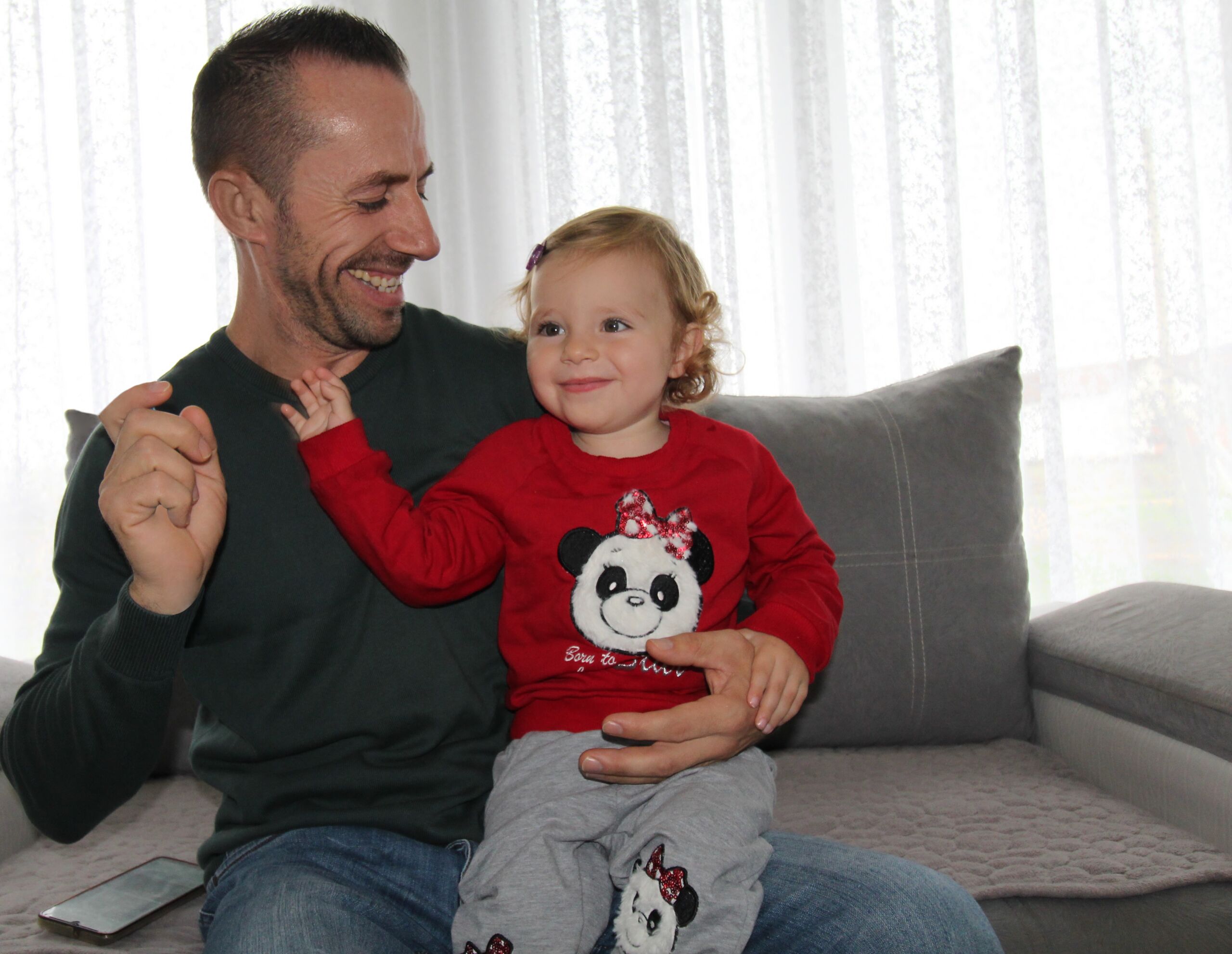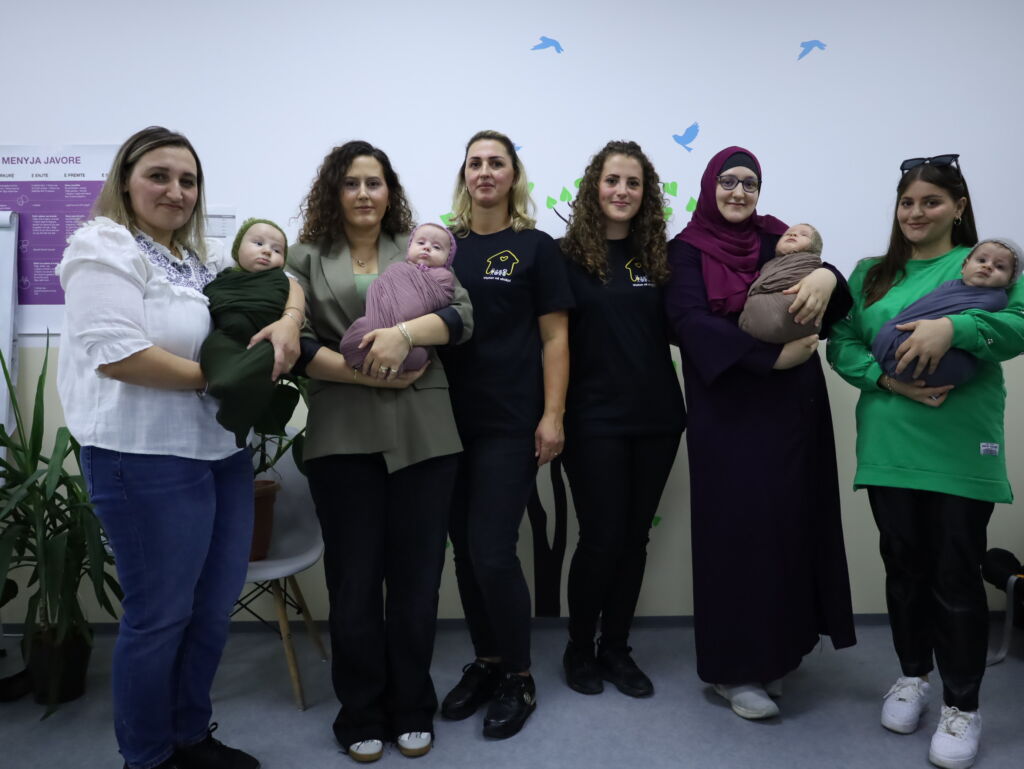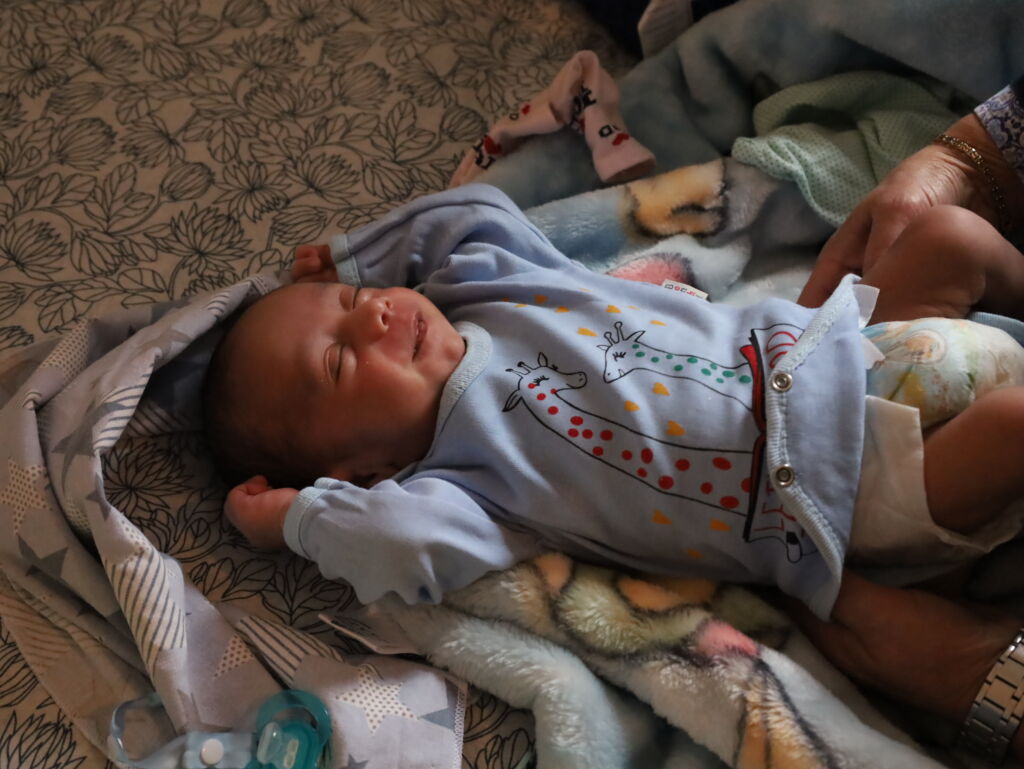
The Story of Erisa and Arben: The importance of father’s engagment for reaching the optimal potential of the child
10.01.2023
This special story comes from Lipjan, from a small village called Qylagë. During the home visits, the nurses from Main Family Medicine Center visited Arben’s home to make a routine checkup for his child. Through the home visiting programme, nurses and midwives provide support to parents and families regarding the health and wellbeing of children.
“This visit was quite different from the others”, says Lindita Bytyqi, the home visiting nurse.”
Erisa was born during springtime and now she is one year and eight months old. Nurse Lindita is very happy when she her father Arben being engaged in taking care of their children.
The proud and happy father explains to us that it is his responsibility to have equal engagement and involvement in the care of the children.
He has a very special relationship with his daughter Erisa, as he emotionally tells us a story when she was sick, and how he took care of her until she fully recovered.
Engagement of the father in child development is critical for the health and wellbeing of a child. Evidence shows that children with highly involved fathers are more empathic; they develop better friendships, show fewer behaviour problems and do better at school.
In Kosovo, the father’s involvement in activities with their children is very low; according to the Multiple Indicator Cluster Survey, only one in 10 fathers engage with their children in four or more activities that promote learning and school readiness.
The Home Visiting programme aims to improve the health and wellbeing of children, pregnant women and parents through provision of visits at home. Through two visits delivered during the pregnancy and five visits for children 0-3 years of age, home visiting nurses support families not only on health-related aspects, but also promote best practices for optimal wellbeing of children, including father’s involvement.





